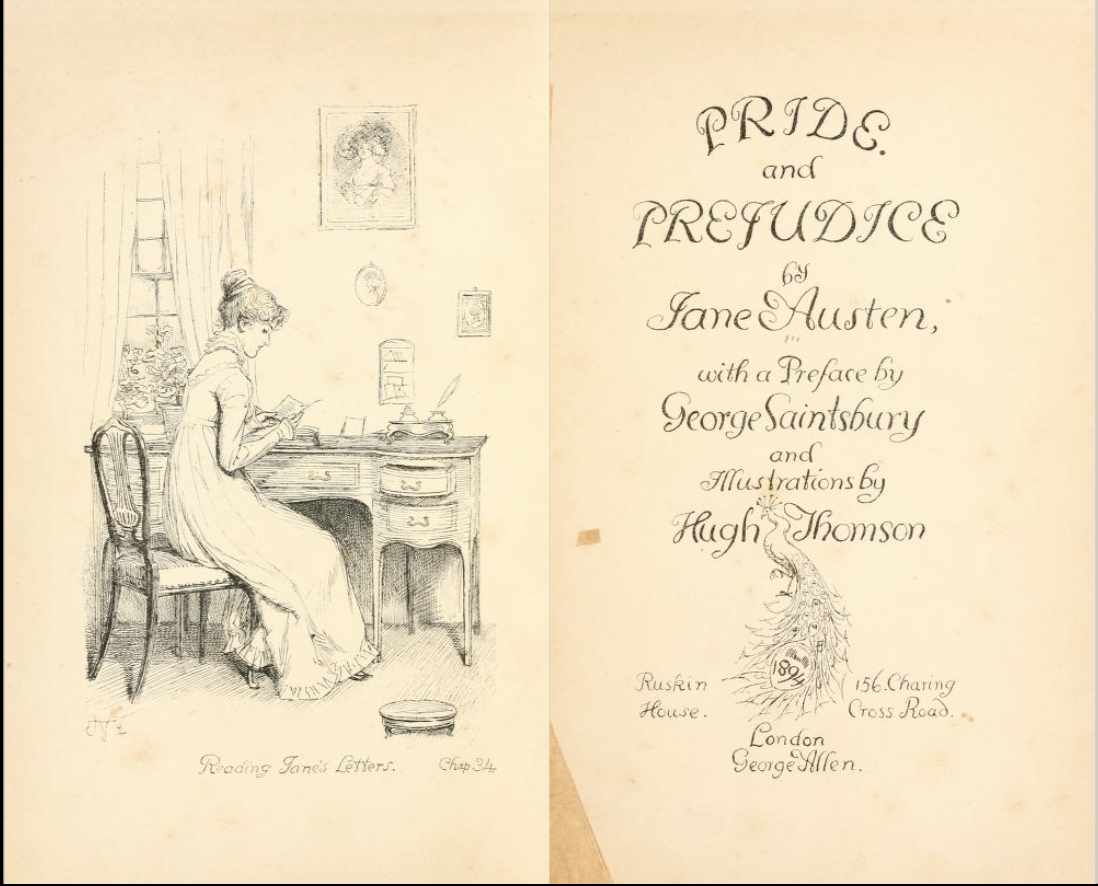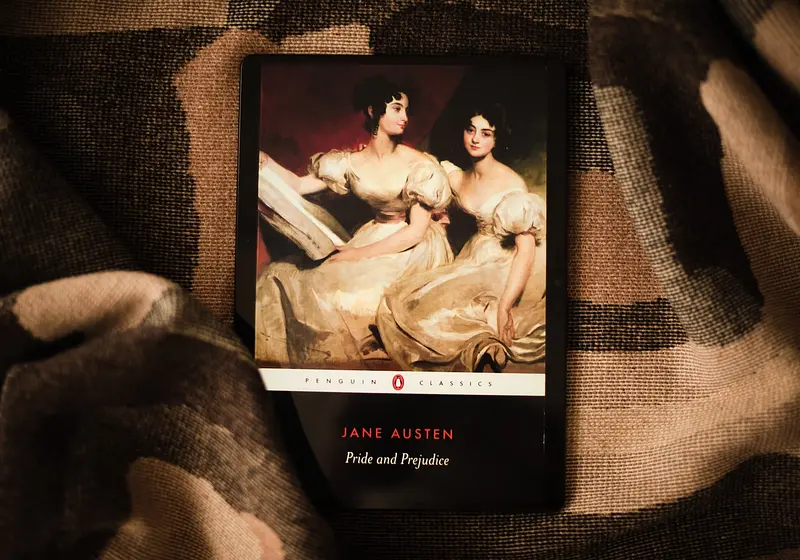Jane Austen is arguably one of the most famous and adored authors in English literature. Despite only writing six full-length novels, her books are read worldwide and have been adapted into countless movie and television adaptions. Austen and her stories are still as relevant and influential today as they were in the Regency era. Her charm and appeal transcend time and culture as she continues to provide a voice and vision for the future. 
Image via Public Domain
“It isn't what we say or think that defines us, but what we do.”
― Jane Austen, Sense and Sensibility
Born in Hampshire, England, in 1775, Jane Austen continues to influence the realm of romance in film and television. Numerous adaptations of her work have been made, including the modern adaptation of Emma, Clueless (1995), and the classic Pride and Prejudice (2005). Her influence is notable and revered.
Interested in learning the history of "the Jane Austen adaptation" and her enduring legacy? An article by Vulture tracks its evolution from Pride and Prejudice's first adaptation in 1938 as a television movie to the American comedy Fire Island (2022).
Today, over 200 years after her death, Austen's six completed novels are known and beloved around the world. Pride and Prejudice, published in 1813, is arguably her most famous novel. Published in 1813, it is a novel of manners or a novel that recreates a social world and is considered a well-loved book and one of the most popular in English literature.
Austen's writing is notable in its clever use of comedy and realistic portrayals of characters and their respective relationships. She was ahead of her time, and her style set the stage for the mid-19th-century realism movement.

Image via Unsplash
“A large income is the best recipe for happiness I ever heard of.”
― Jane Austen, Mansfield Park
Let us slide into your dms 🥰
Get notified of top trending articles like this one every week! (we won't spam you)Humor
Contrary to what some may believe, Austen is a comic writer. Her wicked sense of humor is seen in her novels, which are full of satire, comedy, and wit. Though most of the jokes rely on social context, as seen in Northanger Abbey, which parodies the Gothic genre that was immensely popular at the time.
For fans of Pride and Prejudice, think of Mr. Collins and Mrs. Bennett!

Image via Internet Archive
“Vanity and pride are different things, though the words are often used synonymously. A person may be proud without being vain. Pride relates more to our opinion of ourselves, vanity to what we would have others think of us.”
― Jane Austen, Pride and Prejudice

Take the Quiz: Which Popular YA Novel Series Should I Read Next?
Find out your next great read after this quiz!
Literary Pioneer
Jane Austen pioneered new writing techniques such as free indirect style: a literary approach where the author's voice appears to take on properties of the character's voice to the extent that the reader is unsure who owns the voice or thoughts. While she did not invent this style, she was one of the first writers to use it consistently within her work and came before writers such as Virginia Woolf or James Joyce, who extended the use of this style within their work in the nineteenth century.

Image via Public Domain
"I hate to hear you talk about all women as if they were fine ladies instead of rational creatures. None of us want to be in calm waters all our lives."
― Jane Austen, Persuasion
Social Commentator
Though often overlooked by many readers as a romance author, Austen is often hailed as a social commentator of her time. She is highly critical of the laws and conventions of her time, where women were denied many of the freedoms and opportunities we now possess. She does not openly condemn how her society worked, as more radical authors such as Mary Wollstonecraft did. Austen's novels actively explore such issues as gender relations, power, money, slavery, education, parental responsibilities, and marriage through the eyes of a woman of her time.
She was an early feminist, though not by today's standards, and hints at the need for equality between the sexes. Austen's heroines defy past gender norms, and they push for more involvement in their lives. An overwhelming theme in her work is the inequality faced by women in Regency society, where women had minimal social, legal, or economic rights. While Austen clearly outlines the difficult economic facets of marriage, she offers the possibility of marriage for mutual love and respect or equality in a marriage.
Often called "escapist fiction," her novels transport readers to the simple times of the Regency era, but scholars often note an underlying political subtext. An article by the New Yorker discusses how to "misread" Jane Austen. On the surface, her work seems to be an idealized picture of regency life when, in actuality, it contains a hidden layer of complexity. Some scholars even go as far as to call her a secret radical.

Image via Unsplash
"What are men to rocks and mountains?”
― Jane Austen, Pride and Prejudice
For newfound Austen fans, I recommend starting with the classics: Pride and Prejudice or Emma. As a 'Janeite' myself, I wholeheartedly recommend giving Jane Austen's work a try!
Jane Austen's novels are more than just a typical 'romance,'; rather, they are a social commentary of her time and observations full of wit, satire, and critique.



















